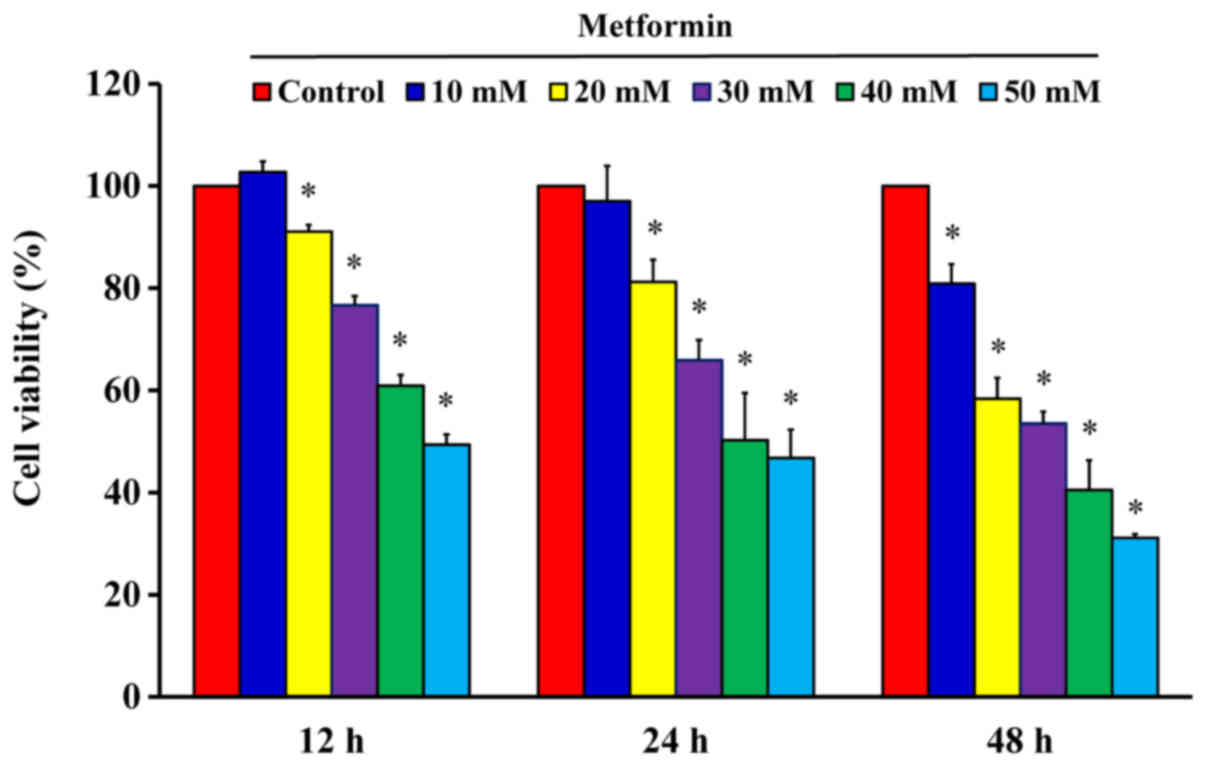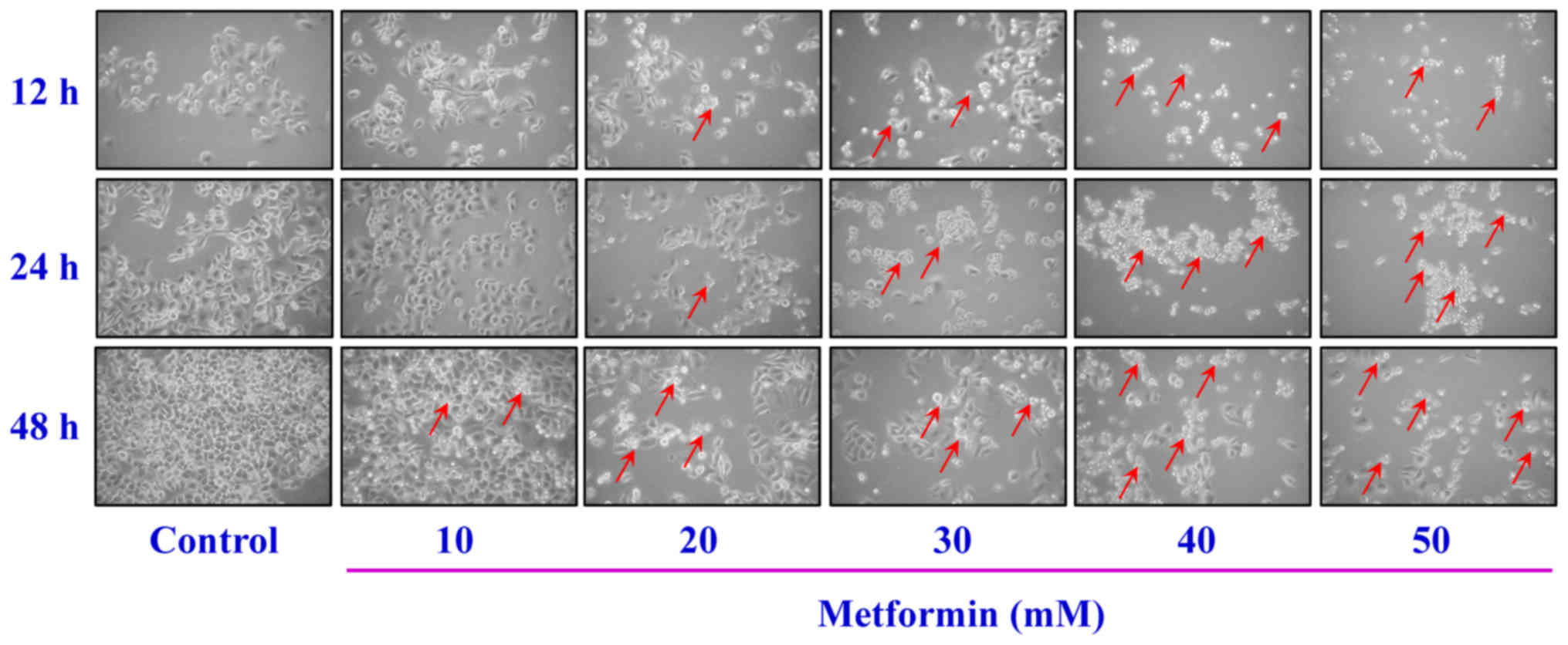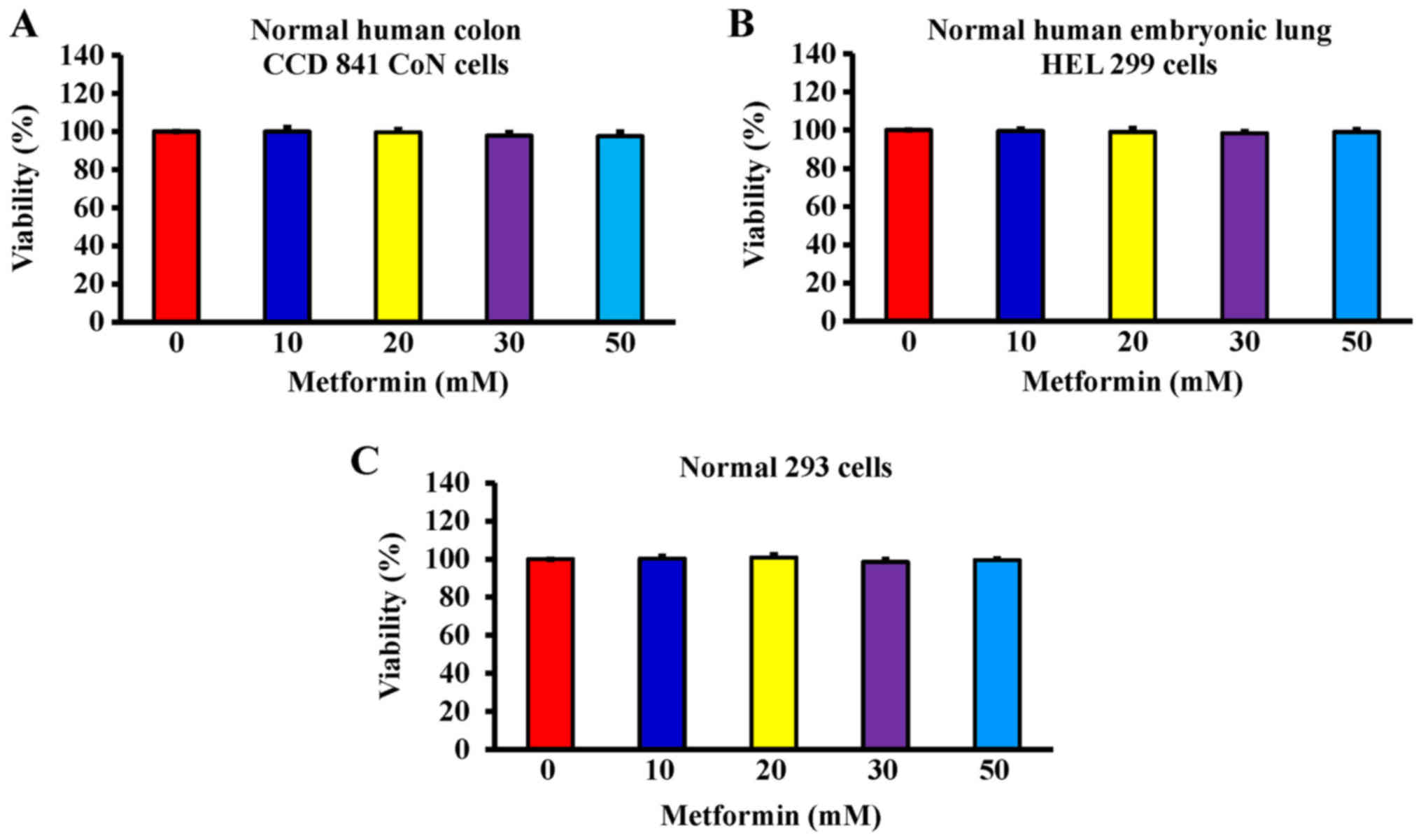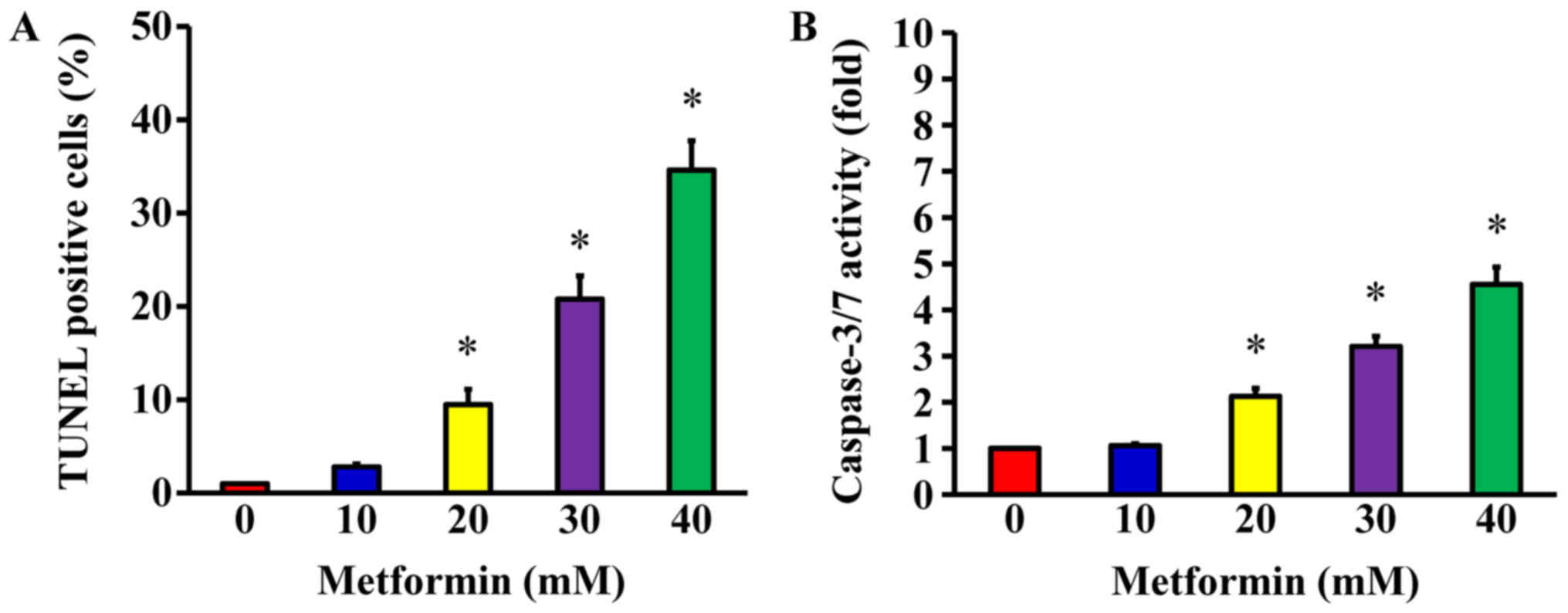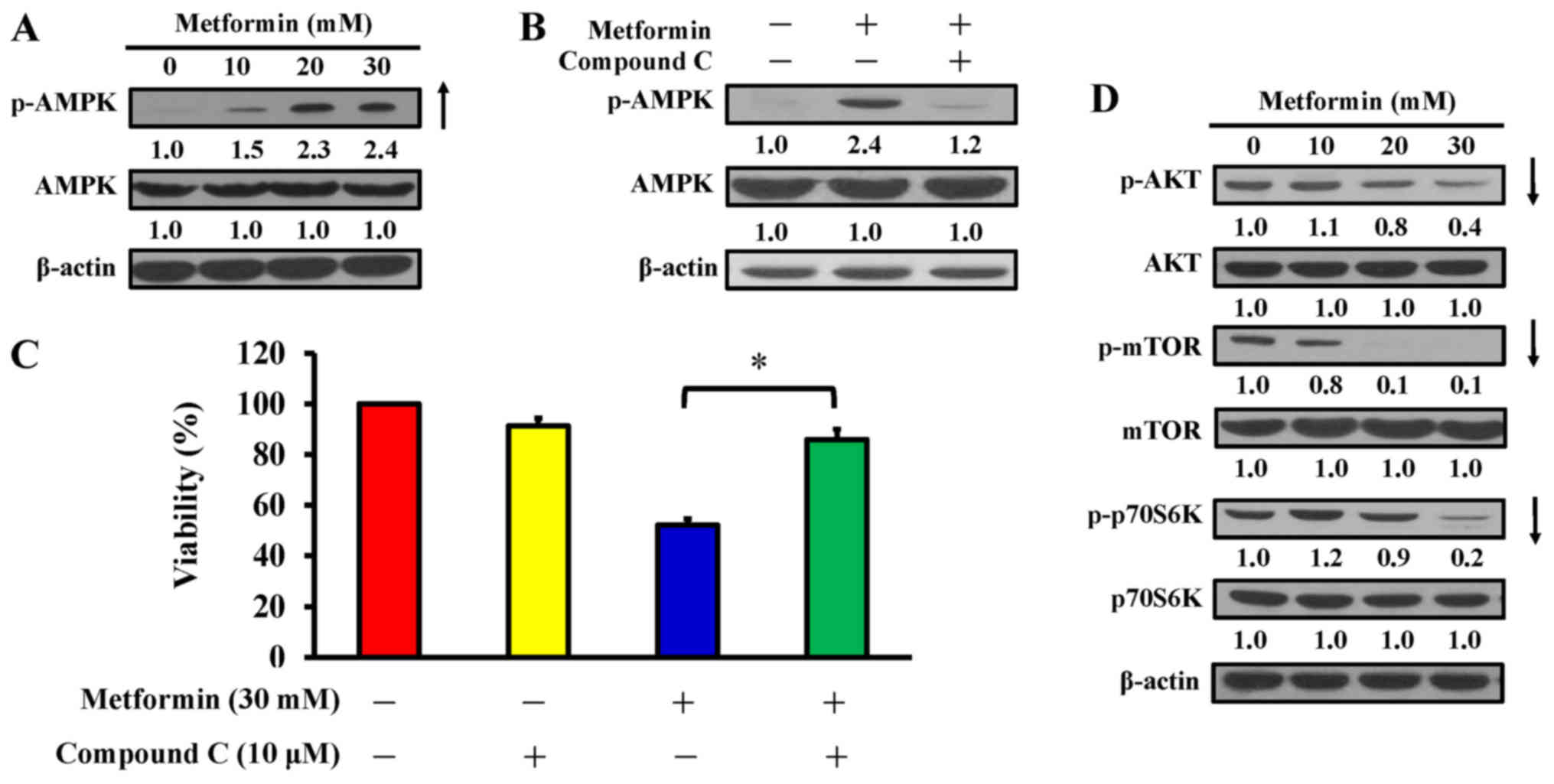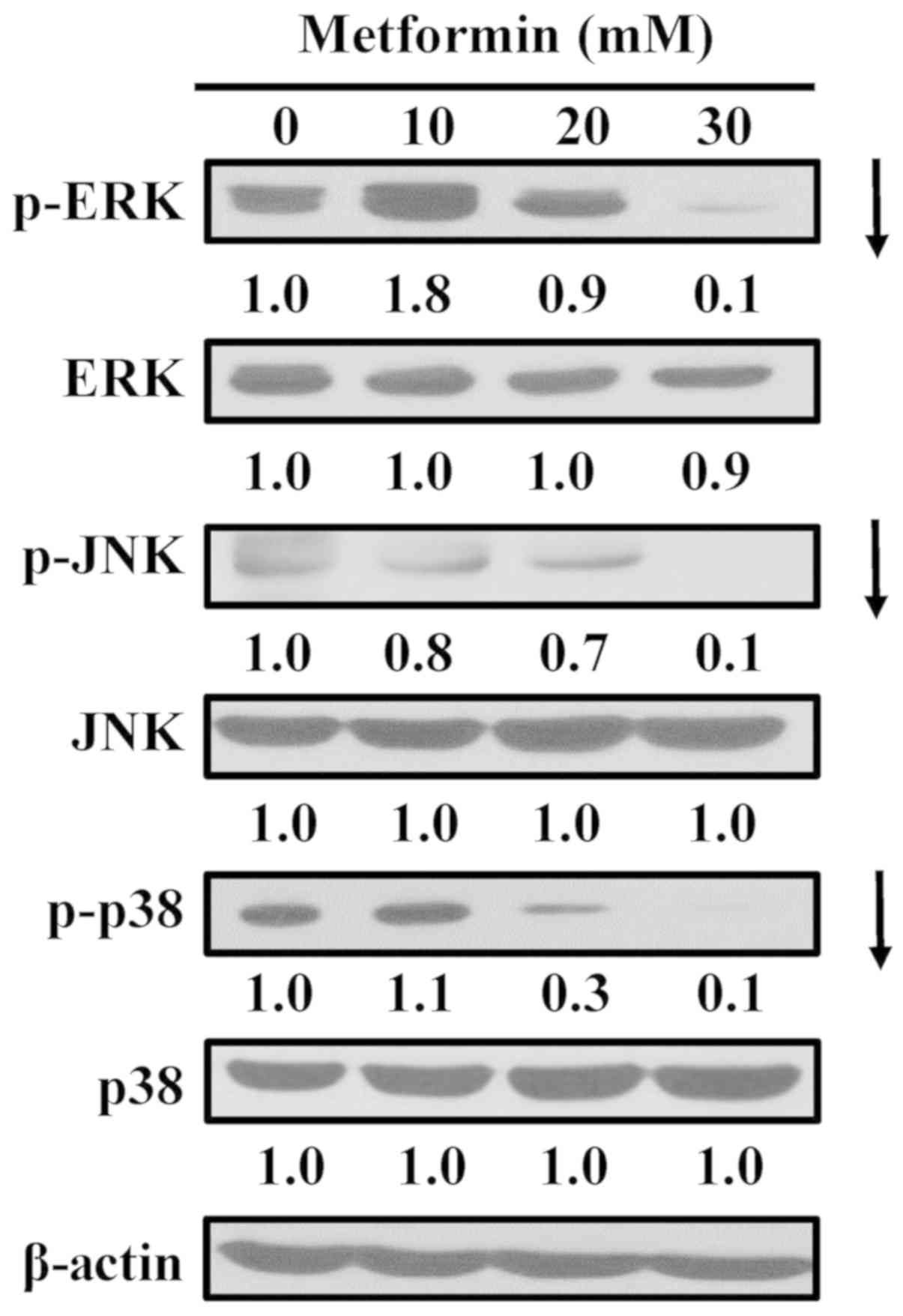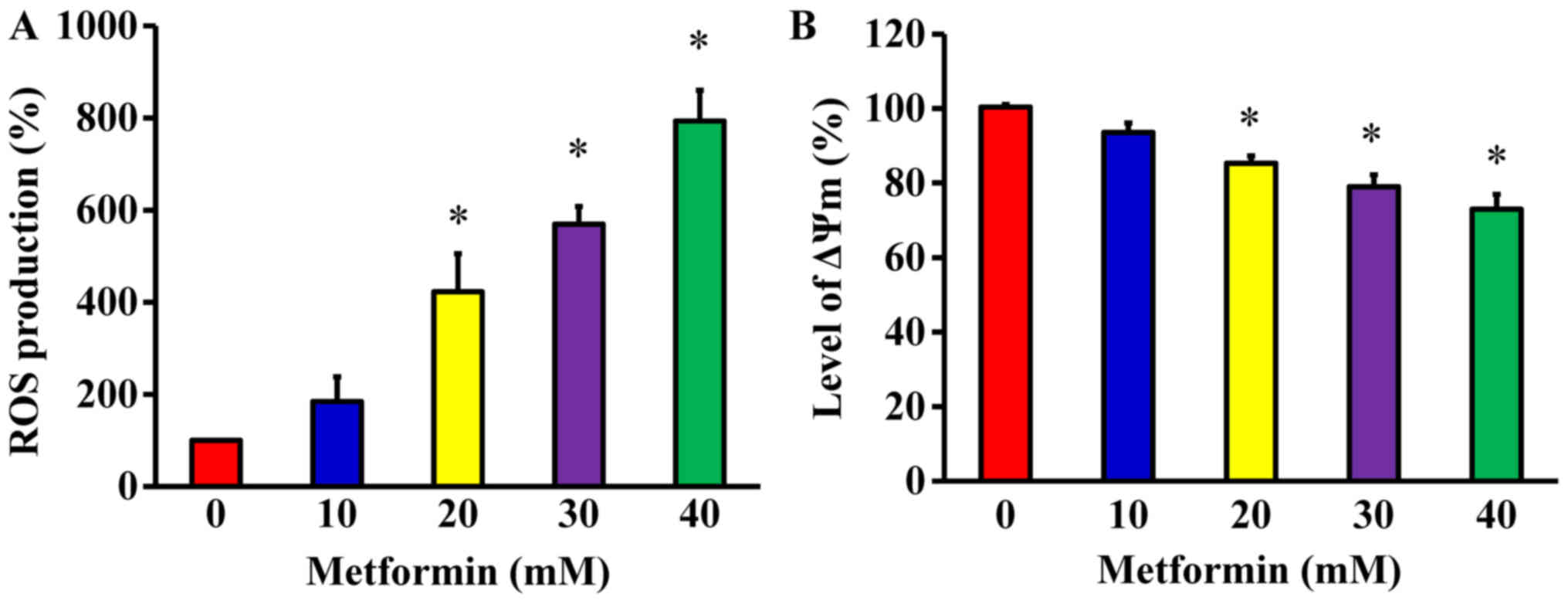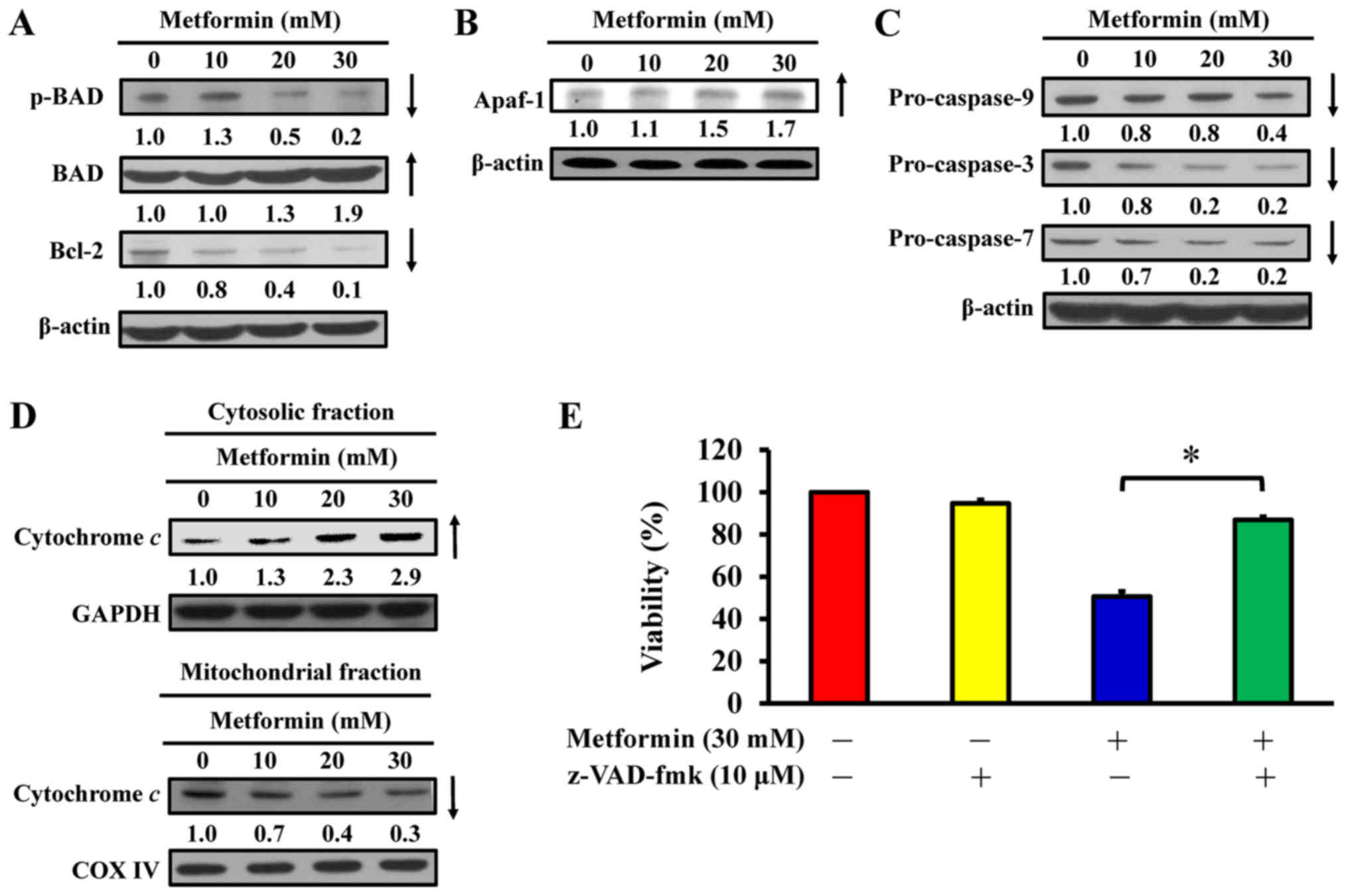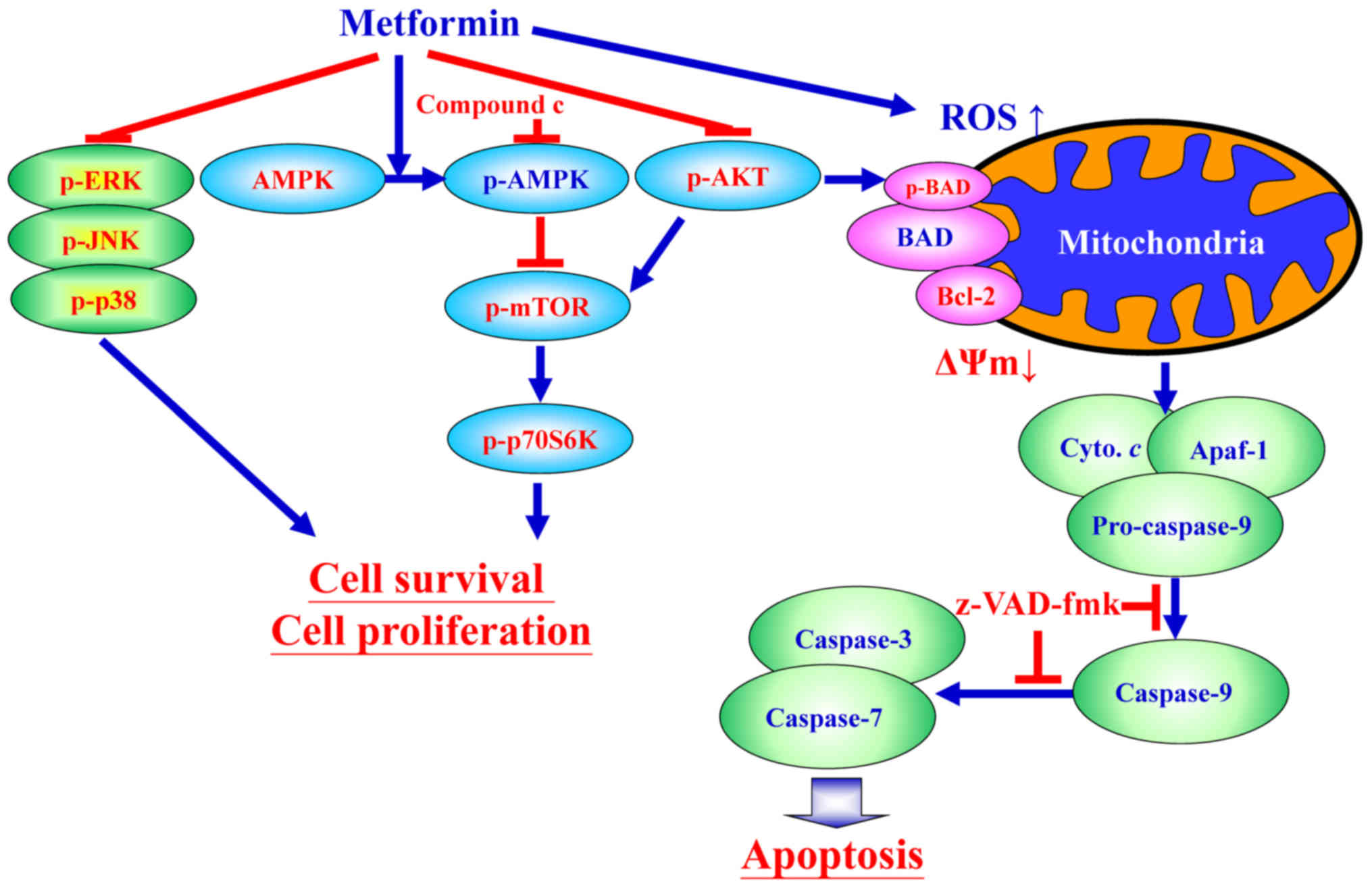|
1
|
Newell M, Baker K, Postovit LM and Field
CJ: A critical review on the effect of docosahexaenoic acid (DHA)
on cancer cell cycle progression. Int J Mol Sci. 18:182017.
View Article : Google Scholar
|
|
2
|
Ministry of Health and Welfare: Republic
of China (Taiwan). https://goo.gl/K1mgSD.
2018
|
|
3
|
Lee YY and Derakhshan MH: Environmental
and lifestyle risk factors of gastric cancer. Arch Iran Med.
16:358–365. 2013.PubMed/NCBI
|
|
4
|
Khatoon J, Rai RP and Prasad KN: Role of
Helicobacter pylori in gastric cancer: Updates. World J
Gastrointest Oncol. 8:147–158. 2016. View Article : Google Scholar : PubMed/NCBI
|
|
5
|
American Cancer Society. https://goo.gl/QdHTvk.
2018
|
|
6
|
Tebbutt NC, Cummins MM, Sourjina T,
Strickland A, Van Hazel G, Ganju V, Gibbs D, Stockler M, Gebski V
and Zalcberg J; Australasian Gastro-Intestinal Trials Group:
Randomised, non-comparative phase II study of weekly docetaxel with
cisplatin and 5-fluorouracil or with capecitabine in
oesophagogastric cancer: The AGITG ATTAX trial. Br J Cancer.
102:475–481. 2010. View Article : Google Scholar : PubMed/NCBI
|
|
7
|
Wöhrer SS, Raderer M and Hejna M:
Palliative chemotherapy for advanced gastric cancer. Ann Oncol.
15:1585–1595. 2004. View Article : Google Scholar : PubMed/NCBI
|
|
8
|
Hou YC, Hu Q, Huang J, Fang JY and Xiong
H: Metformin therapy and the risk of colorectal adenoma in patients
with type 2 diabetes: A meta-analysis. Oncotarget. 8:8843–8853.
2017.
|
|
9
|
Castilla-Guerra L, Fernandez-Moreno MD,
Leon-Jimenez D and Carmona-Nimo E: Antidiabetic drugs and stroke
risk. Current evidence Eur J Intern Med. 48:1–5. 2018. View Article : Google Scholar
|
|
10
|
Coughlan KA, Valentine RJ, Ruderman NB and
Saha AK: AMPK activation: A therapeutic target for type 2 diabetes?
Diabetes Metab Syndr Obes. 7:241–253. 2014.PubMed/NCBI
|
|
11
|
Nyane NA, Tlaila TB, Malefane TG, Ndwandwe
DE and Owira PM: Metformin-like antidiabetic, cardio-protective and
non-glycemic effects of naringenin: Molecular and pharmacological
insights. Eur J Pharmacol. 803:103–111. 2017. View Article : Google Scholar : PubMed/NCBI
|
|
12
|
Zheng J, Woo SL, Hu X, Botchlett R, Chen
L, Huo Y and Wu C: Metformin and metabolic diseases: A focus on
hepatic aspects. Front Med. 9:173–186. 2015. View Article : Google Scholar : PubMed/NCBI
|
|
13
|
Mallik R and Chowdhury TA: Metformin in
cancer. Diabetes Res Clin Pract. 143:409–419. 2018. View Article : Google Scholar : PubMed/NCBI
|
|
14
|
Bridgeman SC, Ellison GC, Melton PE,
Newsholme P and Mamotte CD: Epigenetic effects of metformin: From
molecular mechanisms to clinical implications. Diabetes Obes Metab.
20:1553–1562. 2018. View Article : Google Scholar : PubMed/NCBI
|
|
15
|
Tan M, Wu A, Liao N, Liu M, Guo Q, Yi J,
Wang T, Huang Y, Qiu B and Zhou W: Inhibiting ROS-TFE3-dependent
autophagy enhances the therapeutic response to metformin in breast
cancer. Free Radic Res. 52:872–886. 2018. View Article : Google Scholar : PubMed/NCBI
|
|
16
|
Amaral I, Silva C, Correia-Branco A and
Martel F: Effect of metformin on estrogen and progesterone
receptor-positive (MCF-7) and triple-negative (MDA-MB-231) breast
cancer cells. Biomed Pharmacother. 102:94–101. 2018. View Article : Google Scholar : PubMed/NCBI
|
|
17
|
Fransgaard T, Thygesen LC and Gögenur I:
Association between metformin use after surgery for colorectal
cancer and oncological outcomes: A nationwide register-based study.
Int J Cancer. 143:63–72. 2018. View Article : Google Scholar : PubMed/NCBI
|
|
18
|
Cai X, Hu X, Cai B, Wang Q, Li Y, Tan X,
Hu H, Chen X, Huang J, Cheng J, et al: Metformin suppresses
hepatocellular carcinoma cell growth through induction of cell
cycle G1/G0 p hase arrest and p21CIP and p27KIP expression and
downregulation of cyclin D1 in vitro and in vivo. Oncol Rep.
30:2449–2457. 2013. View Article : Google Scholar : PubMed/NCBI
|
|
19
|
Xia C, Liang S, He Z, Zhu X, Chen R and
Chen J: Metformin, a first-line drug for type 2 diabetes mellitus,
disrupts the MALAT1/miR-142-3p sponge to decrease invasion and
migration in cervical cancer cells. Eur J Pharmacol. 830:59–67.
2018. View Article : Google Scholar : PubMed/NCBI
|
|
20
|
Bai M, Yang L, Liao H, Liang X, Xie B,
Xiong J, Tao X, Chen X, Cheng Y, Chen X, et al: Metformin
sensitizes endometrial cancer cells to chemotherapy through
IDH1-induced Nrf2 expression via an epigenetic mechanism. Oncogene.
37:5666–5681. 2018. View Article : Google Scholar : PubMed/NCBI
|
|
21
|
Kheirandish M, Mahboobi H, Yazdanparast M,
Kamal W and Kamal MA: Anticancer effects of metformin: Recent
evidences for its role in prevention and treatment of cancer. Curr
Drug Metab. 19:793–797. 2018. View Article : Google Scholar
|
|
22
|
Lacroix O, Couttenier A, Vaes E, Cardwell
CR, De Schutter H and Robert A: Impact of metformin on gastric
adenocarcinoma survival: A Belgian population based study. Cancer
Epidemiol. 53:149–155. 2018. View Article : Google Scholar : PubMed/NCBI
|
|
23
|
Wu Y, Gao WN, Xue YN, Zhang LC, Zhang JJ,
Lu SY, Yan XY, Yu HM, Su J and Sun LK: SIRT3 aggravates
metformin-induced energy stress and apoptosis in ovarian cancer
cells. Exp Cell Res. 367:137–149. 2018. View Article : Google Scholar : PubMed/NCBI
|
|
24
|
Sun S, Gong F, Liu P and Miao Q: Metformin
combined with quercetin synergistically repressed prostate cancer
cells via inhibition of VEGF/PI3K/Akt signaling pathway. Gene.
664:50–57. 2018. View Article : Google Scholar : PubMed/NCBI
|
|
25
|
Lu R, Yang J, Wei R, Ke J, Tian Q, Yu F,
Liu J, Zhang J and Hong T: Synergistic antitumor effects of
liraglutide with metformin on pancreatic cancer cells. PLoS One.
13:e01989382018. View Article : Google Scholar
|
|
26
|
Wei M, Mao S, Lu G, Li L, Lan X, Huang Z,
Chen Y, Zhao M, Zhao Y and Xia Q: Valproic acid sensitizes
metformin-resistant human renal cell carcinoma cells by
upregulating H3 acetylation and EMT reversal. BMC Cancer.
18:4342018. View Article : Google Scholar : PubMed/NCBI
|
|
27
|
Peng M, Darko KO, Tao T, Huang Y, Su Q, He
C, Yin T, Liu Z and Yang X: Combination of metformin with
chemotherapeutic drugs via different molecular mechanisms. Cancer
Treat Rev. 54:24–33. 2017. View Article : Google Scholar : PubMed/NCBI
|
|
28
|
Sośnicki S, Kapral M and Węglarz L:
Molecular targets of metformin antitumor action. Pharmacol Rep.
68:918–925. 2016. View Article : Google Scholar : PubMed/NCBI
|
|
29
|
Daugan M, Dufaÿ Wojcicki A, d’Hayer B and
Boudy V: Metformin: An anti-diabetic drug to fight cancer.
Pharmacol Res. 113:675–685. 2016. View Article : Google Scholar : PubMed/NCBI
|
|
30
|
Chen G, Feng W, Zhang S, Bian K, Yang Y,
Fang C, Chen M, Yang J and Zou X: Metformin inhibits gastric cancer
via the inhibition of HIF1α/PKM2 signaling. Am J Cancer Res.
5:1423–1434. 2015.
|
|
31
|
Dorn GW II: Molecular mechanisms that
differentiate apoptosis from programmed necrosis. Toxicol Pathol.
41:227–234. 2013. View Article : Google Scholar
|
|
32
|
Fulda S: The mechanism of necroptosis in
normal and cancer cells. Cancer Biol Ther. 14:999–1004. 2013.
View Article : Google Scholar : PubMed/NCBI
|
|
33
|
Baig S, Seevasant I, Mohamad J, Mukheem A,
Huri HZ and Kamarul T: Potential of apoptotic pathway-targeted
cancer therapeutic research: Where do we stand? Cell Death Dis.
7:e20582016. View Article : Google Scholar : PubMed/NCBI
|
|
34
|
Courtois S, Durán RV, Giraud J, Sifré E,
Izotte J, Mégraud F, Lehours P, Varon C and Bessède E: Metformin
targets gastric cancer stem cells. Eur J Cancer. 84:193–201. 2017.
View Article : Google Scholar : PubMed/NCBI
|
|
35
|
Han G, Gong H, Wang Y, Guo S and Liu K:
AMPK/mTOR-mediated inhibition of survivin partly contributes to
metformin-induced apoptosis in human gastric cancer cell. Cancer
Biol Ther. 16:77–87. 2015. View Article : Google Scholar :
|
|
36
|
Valaee S, Yaghoobi MM and Shamsara M:
Metformin inhibits gastric cancer cells metastatic traits through
suppression of epithelial-mesenchymal transition in a
glucose-independent manner. PLoS One. 12:e01744862017. View Article : Google Scholar : PubMed/NCBI
|
|
37
|
Lu CC, Huang BR, Liao PJ and Yen GC:
Ursolic acid triggers nonprogrammed death (necrosis) in human
glioblastoma multiforme DBTRG-05MG cells through MPT pore opening
and ATP decline. Mol Nutr Food Res. 58:2146–2156. 2014. View Article : Google Scholar : PubMed/NCBI
|
|
38
|
Lu CC, Yang JS, Chiang JH, Hour MJ, Lin
KL, Lee TH and Chung JG: Cell death caused by quinazolinone HMJ-38
challenge in oral carcinoma CAL 27 cells: Dissections of
endoplasmic reticulum stress, mitochondrial dysfunction and tumor
xenografts. Biochim Biophys Acta. 1840.2310–2320. 2014.
|
|
39
|
Chang HP, Lu CC, Chiang JH, Tsai FJ, Juan
YN, Tsao JW, Chiu HY and Yang JS: Pterostilbene modulates the
suppression of multidrug resistance protein 1 and triggers
autophagic and apoptotic mechanisms in cisplatin-resistant human
oral cancer CAR cells via AKT signaling. Int J Oncol. 52:1504–1514.
2018.
|
|
40
|
Ma YS, Weng SW, Lin MW, Lu CC, Chiang JH,
Yang JS, Lai KC, Lin JP, Tang NY, Lin JG, et al: Antitumor effects
of emodin on LS1034 human colon cancer cells in vitro and in vivo:
Roles of apoptotic cell death and LS1034 tumor xenografts model.
Food Chem Toxicol. 50:1271–1278. 2012. View Article : Google Scholar : PubMed/NCBI
|
|
41
|
Lu CC, Yang JS, Chiang JH, Hour MJ, Lin
KL, Lin JJ, Huang WW, Tsuzuki M, Lee TH and Chung JG: Novel
quinazolinone MJ-29 triggers endoplasmic reticulum stress and
intrinsic apoptosis in murine leukemia WEHI-3 cells and inhibits
leukemic mice. PLoS One. 7:e368312012. View Article : Google Scholar : PubMed/NCBI
|
|
42
|
Motoshima H, Goldstein BJ, Igata M and
Araki E: AMPK and cell proliferation - AMPK as a therapeutic target
for atherosclerosis and cancer. J Physiol. 574:63–71. 2006.
View Article : Google Scholar : PubMed/NCBI
|
|
43
|
Eblen ST: Extracellular-regulated kinases:
Signaling from Ras to ERK substrates to control biological
outcomes. Adv Cancer Res. 138:99–142. 2018. View Article : Google Scholar : PubMed/NCBI
|
|
44
|
Peluso I, Yarla NS, Ambra R, Pastore G and
Perry G: MAPK signalling pathway in cancers: Olive products as
cancer preventive and therapeutic agents. Semin Cancer Biol: Sep.
11:2017(Epub ahead of print). View Article : Google Scholar
|
|
45
|
Bailey CJ: Metformin: Historical overview.
Diabetologia. 60:1566–1576. 2017. View Article : Google Scholar : PubMed/NCBI
|
|
46
|
Kinaan M, Ding H and Triggle CR:
Metformin: An old drug for the treatment of diabetes but a new drug
for the protection of the endothelium. Med Princ Pract. 24:401–415.
2015. View Article : Google Scholar : PubMed/NCBI
|
|
47
|
Seliger C, Meyer AL, Renner K, Leidgens V,
Moeckel S, Jachnik B, Dettmer K, Tischler U, Gerthofer V, Rauer L,
et al: Metformin inhibits proliferation and migration of
glioblastoma cells independently of TGF-β2. Cell Cycle.
15:1755–1766. 2016. View Article : Google Scholar : PubMed/NCBI
|
|
48
|
Li P, Zhang C, Gao P, Chen X, Ma B, Yu D,
Song Y and Wang Z: Metformin use and its effect on gastric cancer
in patients with type 2 diabetes: A systematic review of
observational studies. Oncol Lett. 15:1191–1199. 2018.PubMed/NCBI
|
|
49
|
Xiong Y, Lu QJ, Zhao J and Wu GY:
Metformin inhibits growth of hepatocellular carcinoma cells by
inducing apoptosis via mitochondrion-mediated pathway. Asian Pac J
Cancer Prev. 13:3275–3279. 2012. View Article : Google Scholar : PubMed/NCBI
|
|
50
|
Tang G, Guo J, Zhu Y, Huang Z, Liu T, Cai
J, Yu L and Wang Z: Metformin inhibits ovarian cancer via
decreasing H3K27 trimethylation. Int J Oncol. 52:1899–1911.
2018.PubMed/NCBI
|
|
51
|
Huo J, Bian XH, Huang Y, Miao ZC and Song
LH: Inhibitory effect and mechanism of metformin on human ovarian
cancer cells SKOV-3 and A2780. Eur Rev Med Pharmacol Sci.
21:484–489. 2017.PubMed/NCBI
|
|
52
|
Dos Santos, Guimarães I, Ladislau-Magescky
T, Tessarollo NG, Dos Santos DZ, Gimba ERP, Sternberg C, Silva IV
and Rangel LBA: Chemosensitizing effects of metformin on cisplatin-
and paclitaxel-resistant ovarian cancer cell lines. Pharmacol Rep.
70:409–417. 2018. View Article : Google Scholar
|
|
53
|
Tomic T, Botton T, Cerezo M, Robert G,
Luciano F, Puissant A, Gounon P, Allegra M, Bertolotto C, Bereder
JM, et al: Metformin inhibits melanoma development through
autophagy and apoptosis mechanisms. Cell Death Dis. 2:e1992011.
View Article : Google Scholar : PubMed/NCBI
|
|
54
|
Liang X, Kong P, Wang J, Xu Y, Gao C and
Guo G: Effects of metformin on proliferation and apoptosis of human
megakaryoblastic Dami and MEG-01 cells. J Pharmacol Sci. 135:14–21.
2017. View Article : Google Scholar : PubMed/NCBI
|
|
55
|
Madera D, Vitale-Cross L, Martin D,
Schneider A, Molinolo AA, Gangane N, Carey TE, McHugh JB, Komarck
CM, Walline HM, et al: Prevention of tumor growth driven by PIK3CA
and HPV oncogenes by targeting mTOR signaling with metformin in
oral squamous carcinomas expressing OCT3. Cancer Prev Res (Phila).
8:197–207. 2015. View Article : Google Scholar
|
|
56
|
Li Z, Wang L, Luo N, Zhao Y, Li J, Chen Q
and Tian Y: Metformin inhibits the proliferation and metastasis of
osteo-sarcoma cells by suppressing the phosphorylation of Akt.
Oncol Lett. 15:7948–7954. 2018.PubMed/NCBI
|
|
57
|
Cheng K and Hao M: Metformin inhibits
TGF-β1-induced epithelial-to-mesenchymal transition via PKM2
relative-mTOR/p70s6k signaling pathway in cervical carcinoma cells.
Int J Mol Sci. 17:172016. View Article : Google Scholar
|
|
58
|
He Y, Tan X, Hu H, Wang Q, Hu X, Cai X,
Guan Y, Chen B and Jing X: Metformin inhibits the migration and
invasion of esophageal squamous cell carcinoma cells by
downregulating the protein kinase B signaling pathway. Oncol Lett.
15:2939–2945. 2018.PubMed/NCBI
|
|
59
|
Mussin N, Oh SC, Lee KW, Park MY, Seo S,
Yi NJ, Kim H, Yoon KC, Ahn SW, Kim HS, et al: Sirolimus and
metformin synergistically inhibits colon cancer in vitro and in
vivo. J Korean Med Sci. 32:1385–1395. 2017. View Article : Google Scholar : PubMed/NCBI
|
|
60
|
Rasouli S and Zarghami N: Synergistic
growth inhibitory effects of chrysin and metformin combination on
breast cancer cells through hTERT and cyclin D1 suppression. Asian
Pac J Cancer Prev. 19:977–982. 2018.PubMed/NCBI
|
|
61
|
Zhang JW, Zhao F and Sun Q: Metformin
synergizes with rapamycin to inhibit the growth of pancreatic
cancer in vitro and in vivo. Oncol Lett. 15:1811–1816.
2018.PubMed/NCBI
|
|
62
|
Yi Y, Gao L, Wu M, Ao J, Zhang C, Wang X,
Lin M, Bergholz J, Zhang Y and Xiao ZJ: Metformin sensitizes
leukemia cells to vincristine via activation of AMP-activated
protein kinase. J Cancer. 8:2636–2642. 2017. View Article : Google Scholar : PubMed/NCBI
|
|
63
|
Zhang HH, Zhang Y, Cheng YN, Gong FL, Cao
ZQ, Yu LG and Guo XL: Metformin incombination with curcumin
inhibits the growth, metastasis, and angiogenesis of hepatocellular
carcinoma in vitro and in vivo. Mol Carcinog. 57:44–56. 2018.
View Article : Google Scholar
|
|
64
|
Bi T, Zhu A, Yang X, Qiao H, Tang J, Liu Y
and Lv R: Metformin synergistically enhances antitumor activity of
cisplatin in gallbladder cancer via the PI3K/AKT/ERK pathway.
Cytotechnology. 70:439–448. 2018. View Article : Google Scholar :
|
|
65
|
Zhang Q, Kong J, Dong S, Xu W and Sun W:
Metformin exhibits the anti-proliferation and anti-invasion effects
in hepatocellular carcinoma cells after insufficient radiofrequency
ablation. Cancer Cell Int. 17:482017. View Article : Google Scholar : PubMed/NCBI
|
|
66
|
Zakikhani M, Dowling R, Fantus IG,
Sonenberg N and Pollak M: Metformin is an AMP kinase-dependent
growth inhibitor for breast cancer cells. Cancer Res.
66:10269–10273. 2006. View Article : Google Scholar : PubMed/NCBI
|
|
67
|
Jiang W, Zhu Z and Thompson HJ: Dietary
energy restriction modulates the activity of AMP-activated protein
kinase, Akt, and mammalian target of rapamycin in mammary
carcinomas, mammary gland, and liver. Cancer Res. 68:5492–5499.
2008. View Article : Google Scholar : PubMed/NCBI
|
|
68
|
Malki A and Youssef A: Antidiabetic drug
metformin induces apoptosis in human MCF breast cancer via
targeting ERK signaling. Oncol Res. 19:275–285. 2011. View Article : Google Scholar : PubMed/NCBI
|
|
69
|
Eriksson L and Nyström T: Activation of
AMP-activated protein kinase by metformin protects human coronary
artery endothelial cells against diabetic lipoapoptosis. Cardiovasc
Diabetol. 13:1522014. View Article : Google Scholar : PubMed/NCBI
|
|
70
|
Lu Z and Xu S: ERK1/2 MAP kinases in cell
survival and apoptosis. IUBMB Life. 58:621–631. 2006. View Article : Google Scholar : PubMed/NCBI
|
|
71
|
Potapova O, Anisimov SV, Gorospe M,
Dougherty RH, Gaarde WA, Boheler KR and Holbrook NJ: Targets of
c-Jun NH(2)-terminal kinase 2-mediated tumor growth regulation
revealed by serial analysis of gene expression. Cancer Res.
62:3257–3263. 2002.PubMed/NCBI
|
|
72
|
Subramanian M and Shaha C: Up-regulation
of Bcl-2 through ERK phosphorylation is associated with human
macrophage survival in an estrogen microenvironment. J Immunol.
179:2330–2338. 2007. View Article : Google Scholar : PubMed/NCBI
|
|
73
|
Flacke JP, Kumar S, Kostin S, Reusch HP
and Ladilov Y: Acidic preconditioning protects endothelial cells
against apoptosis through p38- and Akt-dependent Bcl-xL
overexpression. Apoptosis. 14:90–96. 2009. View Article : Google Scholar :
|
|
74
|
Kim MJ, Choi SY, Park IC, Hwang SG, Kim C,
Choi YH, Kim H, Lee KH and Lee SJ: Opposing roles of c-Jun
NH2-terminal kinase and p38 mitogen-activated protein kinase in the
cellular response to ionizing radiation in human cervical cancer
cells. Mol Cancer Res. 6:1718–1731. 2008. View Article : Google Scholar : PubMed/NCBI
|
|
75
|
Hsieh SC, Tsai JP, Yang SF, Tang MJ and
Hsieh YH: Metformin inhibits the invasion of human hepatocellular
carcinoma cells and enhances the chemosensitivity to sorafenib
through a downregulation of the ERK JNK-mediated NF-κB-dependent
pathway that reduces uPA and MMP-9 expression. Amino Acids.
46:2809–2822. 2014. View Article : Google Scholar : PubMed/NCBI
|
|
76
|
Wang J, Gao Q, Wang D, Wang Z and Hu C:
Metformin inhibits growth of lung adenocarcinoma cells by inducing
apoptosis via the mitochondria-mediated pathway. Oncol Lett.
10:1343–1349. 2015. View Article : Google Scholar : PubMed/NCBI
|
|
77
|
Gao ZY, Liu Z, Bi MH, Zhang JJ, Han ZQ,
Han X, Wang HY, Sun GP and Liu H: Metformin induces apoptosis via a
mitochondria-mediated pathway in human breast cancer cells in
vitro. Exp Ther Med. 11:1700–1706. 2016. View Article : Google Scholar : PubMed/NCBI
|
|
78
|
Inzucchi SE, Bergenstal RM, Buse JB,
Diamant M, Ferrannini E, Nauck M, Peters AL, Tsapas A, Wender R and
Matthews DR: Management of hyperglycemia in type 2 diabetes, 2015:
A patient-centered approach: update to a position statement of the
American Diabetes Association and the European Association for the
Study of Diabetes. Diabetes Care. 38:140–149. 2015. View Article : Google Scholar
|
|
79
|
Yousef M and Tsiani E: Metformin in Lung
Cancer: Review of in vitro and in vivo animal studies. Cancers
(Basel). 9:92017. View Article : Google Scholar
|
|
80
|
Wang Y, Wu Z and Hu L:
Epithelial-mesenchymal transition phenotype, metformin, and
survival for colorectal cancer patients with diabetes mellitus II.
Gastroenterol Res Pract. 2017.2520581:2017.
|
|
81
|
Su T, Liao B, Dong Y, Peng Z, Zhou Q, Li
B, Peng S and Zhang N: Effect of metformin on colorectal carcinoma
in type 2 diabetes mellitus patients: A Markov model analysis.
Zhonghua Wei Chang Wai Ke Za Zhi. 20:689–693. 2017.In Chinese.
PubMed/NCBI
|
|
82
|
Zhang J, Li G, Chen Y, Fang L, Guan C, Bai
F, Ma M, Lyu J and Meng QH: Metformin inhibits tumorigenesis and
tumor growth of breast cancer cells by upregulating miR-200c but
downregulating AKT2 expression. J Cancer. 8:1849–1864. 2017.
View Article : Google Scholar : PubMed/NCBI
|















